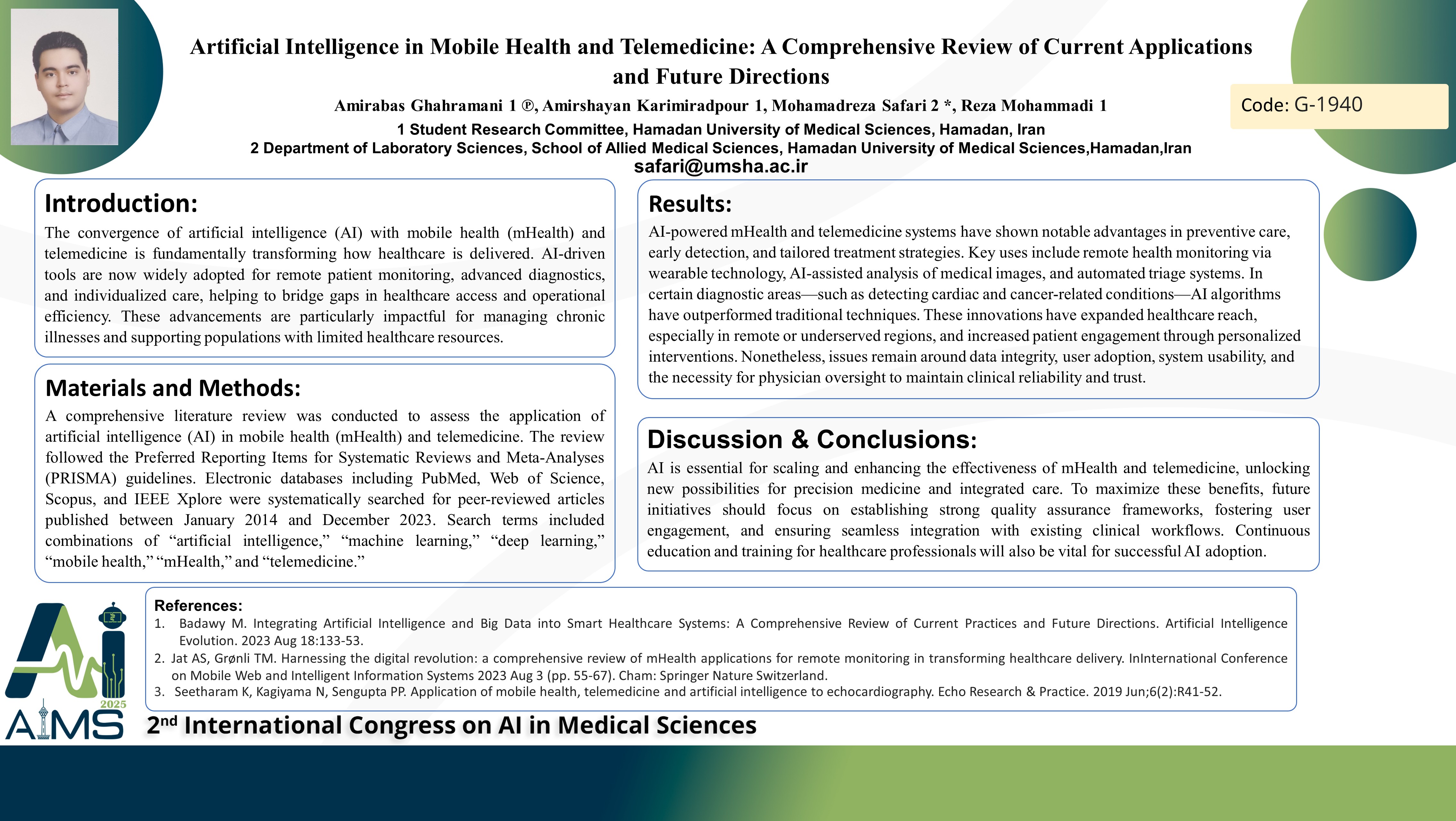هوش مصنوعی در سلامت همراه و پزشکی از راه دور: مروری جامع بر کاربردهای کنونی و دستورالعملهای آینده
کد: G-1940
نویسندگان: Amirabas Ghahramani ℗, Amir Shayan Karimi Radpour, Mohammadreza Safari *, Reza Mohammadi
زمان بندی: زمان بندی نشده!
برچسب: سیستم های تصمیم یار بالینی
دانلود: دانلود پوستر
خلاصه مقاله:
خلاصه مقاله
Introduction: The convergence of artificial intelligence (AI) with mobile health (mHealth) and telemedicine is fundamentally transforming how healthcare is delivered. AI-driven tools are now widely adopted for remote patient monitoring, advanced diagnostics, and individualized care, helping to bridge gaps in healthcare access and operational efficiency. These advancements are particularly impactful for managing chronic illnesses and supporting populations with limited healthcare resources. Method: A comprehensive literature review was conducted to assess the application of artificial intelligence (AI) in mobile health (mHealth) and telemedicine. The review followed the Preferred Reporting Items for Systematic Reviews and Meta-Analyses (PRISMA) guidelines. Electronic databases including PubMed, Web of Science, Scopus, and IEEE Xplore were systematically searched for peer-reviewed articles published between January 2014 and December 2023. Search terms included combinations of “artificial intelligence,” “machine learning,” “deep learning,” “mobile health,” “mHealth,” and “telemedicine.” Result: AI-powered mHealth and telemedicine systems have shown notable advantages in preventive care, early detection, and tailored treatment strategies. Key uses include remote health monitoring via wearable technology, AI-assisted analysis of medical images, and automated triage systems. In certain diagnostic areas—such as detecting cardiac and cancer-related conditions—AI algorithms have outperformed traditional techniques. These innovations have expanded healthcare reach, especially in remote or underserved regions, and increased patient engagement through personalized interventions. Nonetheless, issues remain around data integrity, user adoption, system usability, and the necessity for physician oversight to maintain clinical reliability and trust. Conclusion: AI is essential for scaling and enhancing the effectiveness of mHealth and telemedicine, unlocking new possibilities for precision medicine and integrated care. To maximize these benefits, future initiatives should focus on establishing strong quality assurance frameworks, fostering user engagement, and ensuring seamless integration with existing clinical workflows. Continuous education and training for healthcare professionals will also be vital for successful AI adoption.
کلمات کلیدی
Artificial Intelligence, Machine Learning, Mobile Health,
